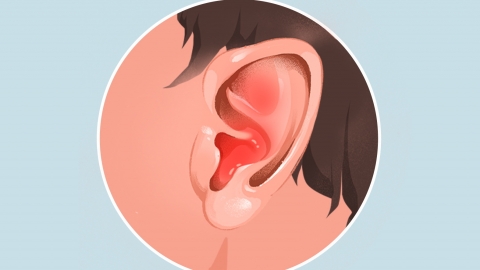What Causes Persistent Tinnitus?
Constant tinnitus may be caused by long-term noise exposure, excessive mental stress, unhealthy lifestyle habits, otitis media, Ménière's disease, and other factors. Appropriate management measures can be taken according to the underlying causes. If physical discomfort occurs, prompt medical consultation is recommended, followed by treatments under medical guidance.

1. Long-term noise exposure: Prolonged exposure to high-decibel environments, such as factory workshops or construction sites, can continuously stimulate the inner ear hair cells, causing tinnitus, often accompanied by hearing loss. Minimize the time spent in noisy environments. If unavoidable due to work conditions, protective equipment such as earplugs or earmuffs should be worn.
2. Excessive mental stress: Chronic mental tension, anxiety, depression, and other negative emotions can affect nerve function, causing spasms in the blood vessels of the inner ear and resulting in tinnitus. It is recommended to relieve mental stress through meditation, yoga, deep breathing, and other methods, practicing daily for 15-30 minutes. Maintain a regular sleep schedule and ensure sufficient rest.
3. Unhealthy lifestyle habits: Long-term late-night activities, excessive fatigue, heavy smoking, and alcohol consumption can interfere with the inner ear's blood circulation and nerve function, leading to tinnitus. Adjust lifestyle habits by going to bed early and waking up early, ensuring 7-8 hours of sleep daily. Quit smoking, limit alcohol consumption, avoid excessive fatigue, and engage in appropriate aerobic exercise.
4. Otitis media: Bacterial or viral infection of the middle ear can cause inflammation, leading to fluid accumulation in the middle ear cavity and eardrum perforation, affecting sound conduction and causing tinnitus, often accompanied by ear pain, hearing loss, and ear discharge. It is recommended to use medications such as amoxicillin capsules, ofloxacin ear drops, and eucalyptus oil-pine camphor soft capsules under medical guidance to alleviate symptoms.
5. Ménière's disease: Accumulation of endolymph in the inner ear causes distension of the membranous labyrinth, resulting in tinnitus, which may be continuous or intermittent. It is often accompanied by vertigo, fluctuating hearing loss, and a feeling of fullness in the ear. Patients may follow medical advice to use medications such as betahistine mesylate tablets, diazepam tablets, and sodium bicarbonate tablets for treatment.
For existing tinnitus, attempts can be made to use white noise machines or listen to soft music to mask the tinnitus sound and reduce its impact on daily life.
References:
[1] Wei Cuiping, Zhang Hongwen, Wang Sa, et al. Research Progress on Traditional Chinese Medicine Treatment for Neurogenic Tinnitus[J]. Chinese Journal of Convalescent Medicine, 2024, 33(10): 77-79. DOI: 10.13517/j.cnki.ccm.2024.10.016.
[2] Mao Qiuyue, Yang Tao, Deng Kai, et al. Study on the Correlation between Vestibular Aqueduct Morphology and the Occurrence of Ménière's Disease[J]. Chinese Journal of Otology, 2024, 22(06): 900-904.






